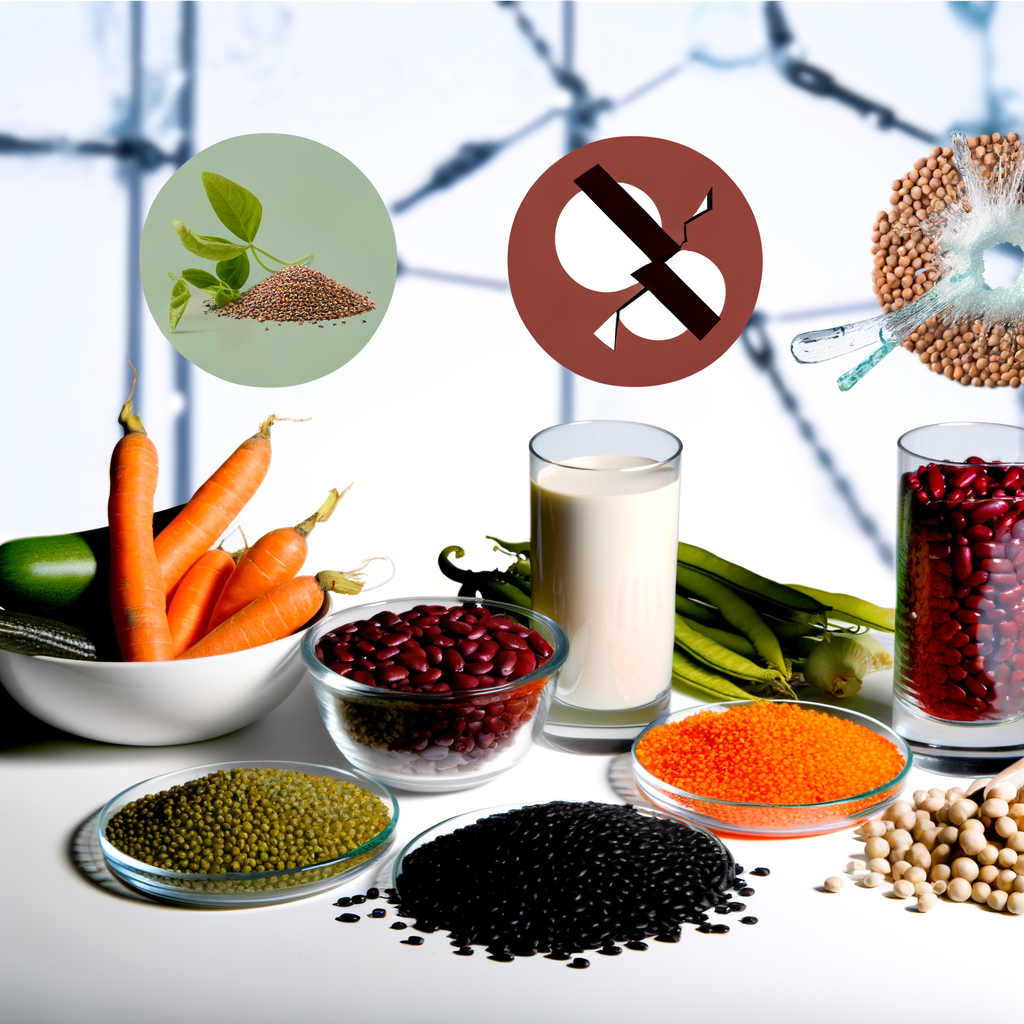The Science Behind Plant-Based Protein
The rise of plant-based diets has been one of the most significant food trends in recent years, driven by a host of factors including health consciousness, environmental concerns, and animal welfare. Among the key discussions within this trend is the comparison between plant-based and animal-based proteins. This debate is not just about which type of protein tastes better or costs less, but rather it’s about understanding the science behind their benefits. This blog post delves into the intricate world of plant-based proteins, exploring their impact on health, their nutritional value compared to animal proteins, and the variety of options available. You will discover why plant-based proteins have become a crucial element in modern diets and what the current science says about their effectiveness.
Plant-Based Protein vs. Animal Protein: A Nutritional Comparison
Understanding Protein Completeness
A common concern among vegetarians and vegans is the notion of “complete” proteins—those that provide all nine essential amino acids that our bodies can’t produce autonomously. Animal proteins, such as meat, eggs, and dairy, are naturally complete proteins. Many plant proteins, however, are not. This has long led to the belief that vegetarians must carefully combine different plant-based foods to achieve a complete amino acid profile, such as the classic combination of rice and beans. Yet, recent studies suggest this worry is overstated. A balanced vegetarian diet typically provides all 20 amino acids, vital for bodily functions, both essential and non-essential.
Overstated Concerns of Amino Acid Deficiency
A 2019 study highlighted that individuals following vegan and vegetarian diets actually receive more-than-adequate levels of protein and amino acids. The study’s authors even suggested that the fear of amino acid deficiency has been greatly exaggerated. This transforms the narrative, showcasing that plant-based eaters can sufficiently meet their nutritional needs without meticulously planning each meal to ensure complete protein intake.
Health Impacts of Plant-Based Proteins
Positive Health Outcomes
Switching to plant-based proteins can yield numerous health benefits. Research links plant-based diets to healthier weight maintenance, a lower risk of type 2 diabetes, and increased longevity. The dietary fiber, antioxidants, and healthy fats found in plants contribute significantly to these positive health outcomes. Substituting animal proteins with plant-based alternatives may lead to a reduced incidence of chronic diseases, promoting overall wellness.
Potential Nutritional Pitfalls
However, plant-based proteins also come with certain caveats. Notably, they often lack vitamin B12, a crucial nutrient for brain function and red blood cell formation, that’s naturally found in animal products. Those fully embracing a vegan lifestyle may need to consider supplements to avoid deficiencies. Also, the thriving industry of plant-based meats and cheeses offers a gamut of alternative products that vary greatly in nutritional quality. Some of these options are highly processed, with sodium and saturated fat content that can rival or exceed those in meat products, suggesting the importance of choosing minimally processed foods.
The Role of Processed Plant-Based Foods
Evaluating Nutritional Content
Plant-based convenience foods, like some plant-based meats, add diversity to meals but can sometimes harbor unexpected nutritional negatives. Christine Milmine, RDN, cautions that the sodium and saturated fat levels in these processed foods can be comparable to or even surpass those of meats. Reading nutrition labels becomes essential in discerning which products contribute to a healthy diet.
Moderation and Balance
Amy Gorin, MS, RDN, underscores that while these alternatives are delicious, they should be consumed in moderation, not forming the backbone of every meal. The goal is to integrate whole, unprocessed foods into the diet predominantly, using these alternatives as occasional treats rather than staples.
Challenges and Misconceptions around Soy
Addressing Food Sensitivities
For those with allergies to soy or nuts, integrating a plant-based protein diet can be challenging. These common allergens necessitate careful consideration of dietary choices to ensure complete nutrition without adverse effects. Similarly, individuals with digestive issues like irritable bowel syndrome need to manage the higher fiber content inherent in many plDispelling Soy Myths
Soy often finds itself at the center of health debates. Concerns have circulated about its effects on hormone balance and its purported link to cancer. Recent studies, however, have assuaged these fears. A 2020 study involving over 300,000 women determined that soy consumption may indeed lower the risk of breast cancer. Prominent health organizations, like the American Cancer Society, affirm that soy is both safe and nutritious, further debunking myths that have surrounded this versatile protein source.
Summary of Key Points
The quest for understanding plant-based proteins leads to several enlightening insights. Plant-based diets can offer complete nutritional profiles without the need for meticulous meal planning around amino acid combinations. They contribute substantially to positive health outcomes, although vigilance is needed to avoid vitamin B12 deficiencies and navigate the processed food landscape. Moreover, addressing myths related to popular sources like soy is crucial in forming an informed dietary perspective.
Call to Action
If you’ve found this exploration into plant-based proteins compelling, consider subscribing to our newsletter for more such in-depth analyses. We also encourage you to share this post with those curious about embracing plant-based diets. Your comments and insights are valuable to us—leave a comment below to join the discussion!



